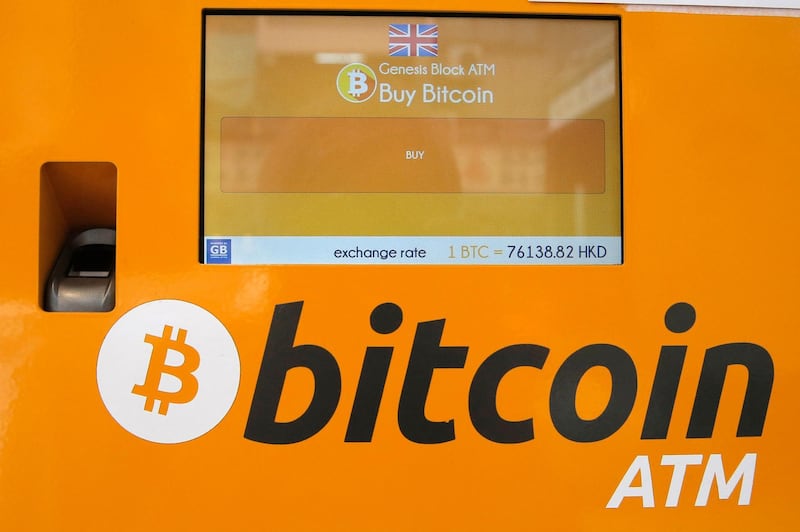Bitcoin traded above US$6,000 (Dh22,040) on Monday morning after dropping below that level for the first time since February over the weekend, with the digital currency heading for a second straight quarterly decline.
The cryptocurrency was trading at $6,148.22 at 2.23pm in Hong Kong, up 1.3 per cent from its Friday close, according to composite Bloomberg pricing. It slumped to as low as $5,780 on Sunday, breaching the previous 2018 nadir set in February, according to Bitstamp prices. Rival coins including Ripple, Ethereum and Litecoin continue to trade lower, the data show.
_______________
Read more:
Bitcoin growth could break internet, BIS warns
Report suggests Bitcoin and others manipulated by Tether digital currency
_______________
Bitcoin has tumbled more than 50 per cent this year as regulators spanning the globe step up scrutiny of what some have criticised as a vehicle for fraud. A series of hacks, including a $500 million theft at a Japanese exchange in January and incidents in South Korea since then, have undermined confidence in the security of the digital currency.
In one of the latest flaps, private data including coin-wallet addresses and passwords for 19 clients were posted on a Kakao group chat on June 22, said Kim Moon-hyung, an official with South Korean exchange Bitkoex. The official said there were no financial losses from the leak.
Sunday’s volatility came as the Bank of International Settlements, which serves as a clearing house and research and discussion forum for central banks, continued its critique of digital currencies. The BIS’s head of research said many cryptocurrencies should be regulated like stocks and bonds.
On Friday, Japan’s Financial Services Agency ordered six of the country’s biggest crypto-trading venues to improve measures to prevent money laundering. The companies must submit their plans by July 23. New pressure in Japan, one of the most crypto-friendly jurisdictions, demonstrated the market’s fragility to regulatory moves in the absence of much positive news.






